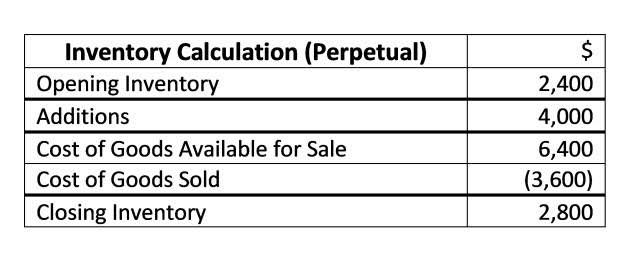Content

Then, another $200,000 worth of revenues was seen in 2017, as well as $400,000 in 2018. If the temporary account was not closed, the total revenues seen would be $900,000. They are the accounts that don’t have their balances carried forward at the end of an accounting period but are https://kelleysbookkeeping.com/how-to-master-restaurant-bookkeeping-in-five-steps/ nonetheless tied to a certain fiscal period. To help you further understand each type of account, review the recap of temporary and permanent accounts below. Typically, permanent accounts have no ending period unless you close or sell your business or reorganize your accounts.
Temporary accounts, also known as nominal or closing accounts, are those used to store income and expense information until they can be transferred into permanent accounts at the end of an accounting period. Some financial activity has a long-term impact on the financial well-being of the business, and it carries over to, or is reported in, subsequent accounting periods. In the next step, the net income is calculated by subtracting the expenses ($5,000) from the revenue ($10,000). The result ($5,000) reflects the net income for the reporting period. Since the income summary is also a temporary account, that ending balance also must be closed out. This is done by making a debit entry of $5,000 in the income summary, bringing that balance also to zero.
Temporary vs. Permanent Accounts: What’s the Difference?
Balances for permanent accounts are recorded on your balance sheet, showing the company’s finances at that moment. They help you track your performance in a given accounting cycle and determine whether or not you’re meeting your short-term business goals. There are basically What to Expect from Accounting or Bookkeeping Services three types of temporary accounts, namely revenues, expenses, and income summary. Permanent accounts do not need to be closed at the end of the period, unlike temporary accounts. They make it possible to track money over several accounting quarters in a year.

Some accounting information reflects the business’s ongoing financial affairs, such as assets, liabilities, and equity. In contrast, a permanent account is not closed after the reporting period ends. Its balances carry over from one reporting period to the next and are cumulative, meaning that they add up over time. More than 4,200 companies of all sizes, across all industries, trust BlackLine to help them modernize their financial close, accounts receivable, and intercompany accounting processes.
Is Rent Income a Temporary Account?
Expense accounts record all money paid by the business to cover operating costs. These include salaries and benefits, advertising, purchasing, utilities, rent, and travel reimbursements. Global and regional advisory and consulting firms bring deep finance domain expertise, process transformation leadership, and shared passion for customer value creation to our joint customers. Our consulting partners help guide large enterprise and midsize organizations undergoing digital transformation by maximizing and accelerating value from BlackLine’s solutions. Centralize, streamline, and automate end-to-end intercompany operations with global billing, payment, and automated reconciliation capabilities that provide speed and accuracy.
What are the 5 major types of accounts and explain each account?
In general, there are 5 major account subcategories: revenue, expenses, equity, assets, and liabilities. A business transaction will fall into one of these categories, providing an easily understood breakdown of all financial transactions conducted during a specific accounting period.
If, for example, the account records expenses of $5,000 for the period, a credit for the same amount will be recorded as a closing entry bringing the ending balance to zero. Unlike temporary accounts, which “start over” at a zero balance in each new reporting period, permanent accounts will have a balance that carries over from one reporting period to the next. The ending balance of the previous reporting period will be the starting balance of the next reporting period. The balance in the revenue account is cancelled out at the end of the accounting period, whether it’s a monthly, quarterly, or yearly term, by moving the balance to your income summary account.


